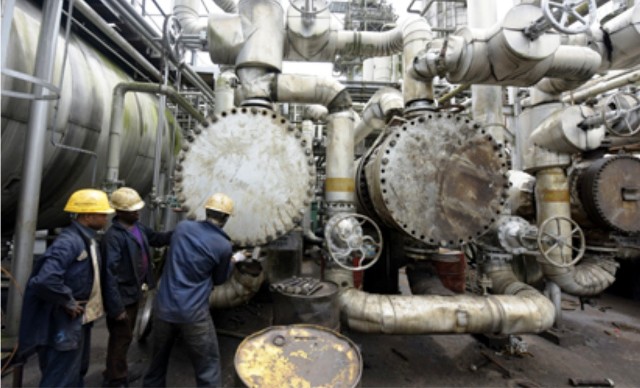Business
Expert Faults Planned Down Stream Deregulation
It is barely five years since Charles McPherson, the former Senior Adviser, Oil and Gas, World Bank delivered a paper “Drivers of Price and Tax Reform” during Nigeria Gas Policy Stakeholders Workshop in Abuja.
Since September McPherson had been in the country, this time as the managing Director of international Monetary Fund (IMF) on the invitation of the Federal government, yet on another assignment ‘mediation of the current face-off between government and the Foreign Oil Companies’ over the very voyage he set/launched yet without adequate resources for the mission.
Speaking in Port Harcourt, the Chief Coordinator, Institute of Chartered Economists of Nigeria, South- South, Mr. Friday Udoh said the reschedule petroleum downstream deregulation policy of the Federal government is faulty, describing deregulation as a perfect agent that is capable of transforming economic landscapes of any nation only when structuring in a more sustainable way. “The American, Britain and many other nation does it and it works bringing down the prices of oil and gas” of all “what drive this success is adequate structure and capacity, in Nigeria to my understanding, private sector is gone,” he asserted.
The Coordinator, noted that deregulation build-up market based price mechanism for increasing balanced in supply and demand structure, complementing with appropriate instruments to give every consumers and producers alike within products supply chain liberty to exercise its right, at ensuring value for money and quality supply in the market, again shaping the market for appropriate and long- term up-front investment. Where are these instruments? He asked
Citing malfunctioning of the already inadequate 445,000 barrel per day referees in the country and the inability of government given private investor’s necessary cooperation to assists them in speeding up various private refinery projects. “The issue that bothered on the fully taken-off private refineries construction is not just the removal of subsidy alone, but enabling laws to galvanized their relationship with the upstream operator for security of feed stock and difficulty in accessing credit facility due to global and domestic financial structure failure, a situation that call for government intervention in addressing the challenges” “as I am speaking, the major components of the Amakpe Refinery, Eket is ready in United State and I feel that it is the responsibility of government seeking to know their problem and supporting this initiatives for the interest of its citizens by developing collaborative structure for contacts and innovative financial structure to boost local production capacity for appropriate pricing of Petroleum Products in the country, not only Amakpe alone but to others “He noted.
According to Mr Udob, the situation become more worrisome under a weak institutional environment referring to sector-level legal and regulatory framework whose capacity to influence and supporting sustainability and success of reform depend, more so its recognition as the beginning and implementation point of every successful reform, especially in a market oriented reforms as in petroleum sub-sector to protect the consumers, its mandate and clarity of rules defining her/his existence and relationship with other bodies, such as antitrust commission and relevant ministries. Is it the kind of Petroleum Products Price Regulation and Monitoring Agency (PPPRA) a tool for political joggling or Department of Petroleum Resources (DPR) in the face of disjointed supply chain capability? Earnestly, their activity creates more problem than can solve. He reiterated
Mr. Udoh likened reform measures to macro-economic policies and reform performance to economic indicators such as income per capita and the institutional aspect to the rule of law and property rights, again energy resource independence to geographical advantage of a state, to which careful thought need to be given while pointed out that the quality of institutions in the country can have a significance influence over economic development, sustaining continuity and the dynamic of reform process” At the moment kerosene goes at N300 per litre meaning that in an economy with many leaving in abject poverty and within $1 N140) per day, deregulation of downstream amounts to mass suicide, hence adequate thought must be given to economic indicators” He stated
He listed poverty as one of the greatest problem facing the country today and alarming unemployment rate which radical approach is needed to facilitate income growth through employment and ensure access to basic services and goods for the poor meaning that for successful reform, the Economic, Social, Environmental and Institutional Framework must be given adequate attention, considering that Petroleum product is the only source of energy qualified as “strategic goods” given rise to abuse and absent of standardization and quality control pricing and uncoordinated safety measures.
Business
IPMAN Wants Marketers To Patronize PH Refinery

Business
Customs To Facilitate Trade, Generate Revenue At Industrial Command






